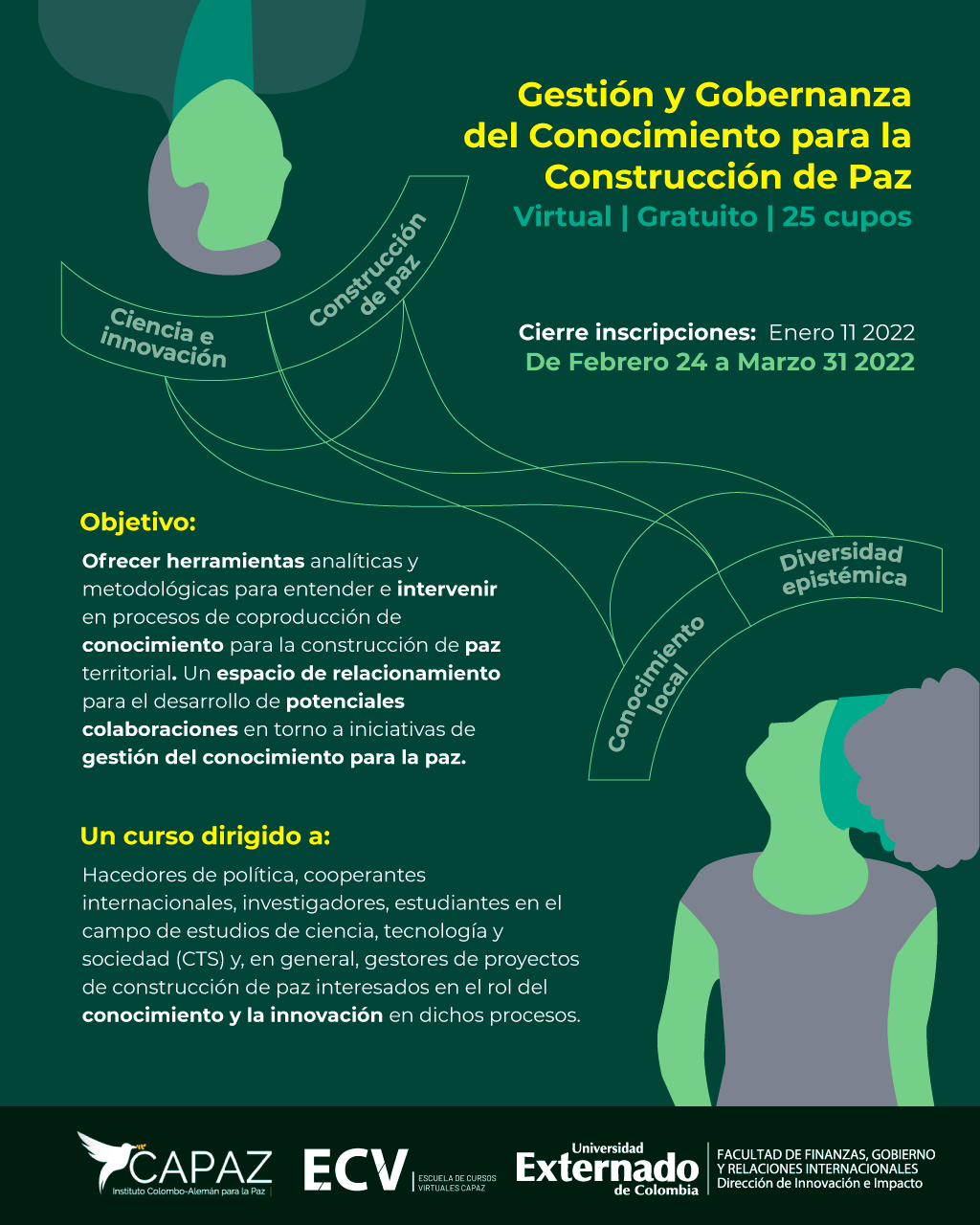
Online course: Knowledge management and governance for peacebuilding
 As part of Phase II of our School of Online Courses, we present this free online course that created in partnership with the Innovation and Impact Department at Universidad Externado.
As part of Phase II of our School of Online Courses, we present this free online course that created in partnership with the Innovation and Impact Department at Universidad Externado.
Following the signing of the Peace Agreement, building territorial peace continues to be an institutional and academic challenge. This online course provides agents of change with an opportunity to strengthen their skill in the use of various sources of knowledge involved in peacebuilding. It is intended to trigger new ideas about the link between knowledge and peace, as this represents both a practical and research challenge when implementing projects designed to build lasting territorial peace. The course is structured as a framework for the exchange of ideas and experiences, targeting primarily decision makers, public policy makers, international donors, researchers and research managers/coordinators, undergraduate and graduate students studying science, technology, and social studies and, in general, managers of peacebuilding projects interested in understanding how knowledge supports agents of local change.
The contents focus on three main topics: 1) the role of knowledge in peacebuilding; 2) public and knowledge policies that enhance or inhibit peacebuilding initiatives; and 3) the interaction between scientific knowledge and other forms of knowledge.
Admission requirements
To join, applicants need to complete the registration form below and attach the following documents in PDF format:
CV (resume)
Statement of purpose (maximum 3 pages).
Applicants must explain the reason for which they wish to take part in the course, and a provide a case for analysis to be developed during the course. To do so, they should take the following guiding questions into account based on their field of practice (professional, academic, intervention, management, etc.):
How does the relationship between knowledge and peace manifest/take shape?
What knowledge policies, programmes, projects, or instruments facilitate or inhibit local transformation for peacebuilding?
How can the interaction between different knowledge forms, practices, and products contribute to peacebuilding?
Important dates:
Closing date for entries: December 03, 2021
Notification of results: February 8, 2022
Classes begin: February 24, 2022
Classes end: March 31, 2022



